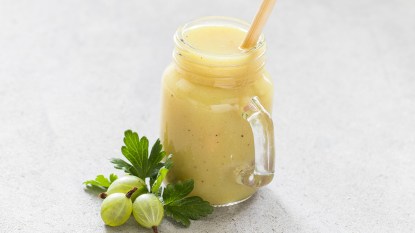A Chemical Commonly Found in These Products You Use Every Day Could Increase Your Risk of Heart Disease

It’s hard to imagine life without plastic. From the containers we use to store leftovers and the water bottles that keep us hydrated, to the tubes that hold our toothpaste and the toys our children play with, plastic is everywhere. Most companies advertise their plastics as BPA-free. But is that enough to make them safe? New research suggests that a chemical – with less research behind it than BPA – may increase the level of cholesterol in our bodies and put us at greater risk for cardiovascular disease.
Dicyclohexyl phthalate, or DCHP, is a type of phthalate. Phthalates are used to make plastics more durable, and are also known as plasticizers. Manufacturers use them in a wide variety of products, including food packaging, cosmetics, shampoo and conditioner, and cleaning materials.
Many phthalates and plastic chemicals, like DEHP and BPA, have been shown to be harmful after extensive research. (DEHP may cause cancer and birth defects, while BPA may harm the female reproductive system.) As a result, many manufacturers don’t use them — and they must provide a warning label on their products if they do.
In contrast, we know very little about how DCHP affects our health, so it comes with no warning labels. And according to the study published this month in the Environmental Health Perspectives, there is cause for concern.
The Link Between DCHP and Cardiovascular Disease
To understand how DCHP might affect our bodies, Changcheng Zhou, a biomedical scientist at the University of California, led a team of scientists in researching DCHP in mice — whose genetic, biological, and behavioral characteristics closely resemble that of humans. The mice in this study were specially bred to have human cells lining their intestines, which made the results even more realistic.
Some of the mice were fed a solution that contained DCHP, while the rest were given corn oil as a placebo. Upon analyzing the mice, researchers noticed that DCHP was binding to a receptor in their bodies, which increased the amount of cholesterol they’d been absorbing from their diet.
“We found dicyclohexyl phthalate, or DCHP, strongly binds to a receptor called pregnane X receptor, or PXR,” Zhou explained in a press release. “DCHP ‘turns on’ PXR in the gut, inducing the expression of key proteins required for cholesterol absorption and transport. Our experiments show that DCHP elicits high cholesterol by targeting intestinal PXR signaling.”
In addition, DCHP increased the number of ceramides circulating in the mice’s intestines. Ceramides are long-chain fatty acids, or waxy lipid molecules. The more ceramides circulating in the body, the higher a person’s risk for cardiovascular disease. Mice that received DCHP also tended to have hyperlipidemia, or high cholesterol – an abnormally high level of fats (lipids) in the blood.
As a result, the researchers concluded that DCHP exposure may increase the risk of high cholesterol and cardiovascular disease in humans.
How to Avoid DCHP and Other Phthalates
So, what does this mean for you? Fortunately, the U.S. Environmental Protection Agency has labeled DCHP as a “high-priority substance for risk evaluation,” so more studies are on the way. In the meantime, you can try and cut down on your use of plastic products that contain phthalates.
It’s tough to determine which products have phthalates, but you can check plastic items for a three or four-letter label. Most phthalates are labeled as an acronym, which usually starts with a B, D, or M and ends with P. Also, try not to microwave your foods in plastic if you can help it, unless you know your containers are phthalate-free. Phthalates can leach from plastic containers into food.
In addition, you may find it worthwhile to invest in a plastic-free, reusable water bottle and food containers. We recommend the Hydro Flask Stainless Steel Water Bottle (Buy from Amazon, $24.71) and these Pyrex Glass Storage Containers (Buy from Bed Bath and Beyond, $39.99). By being more mindful of the products you use each day, you should be able to limit your exposure.













